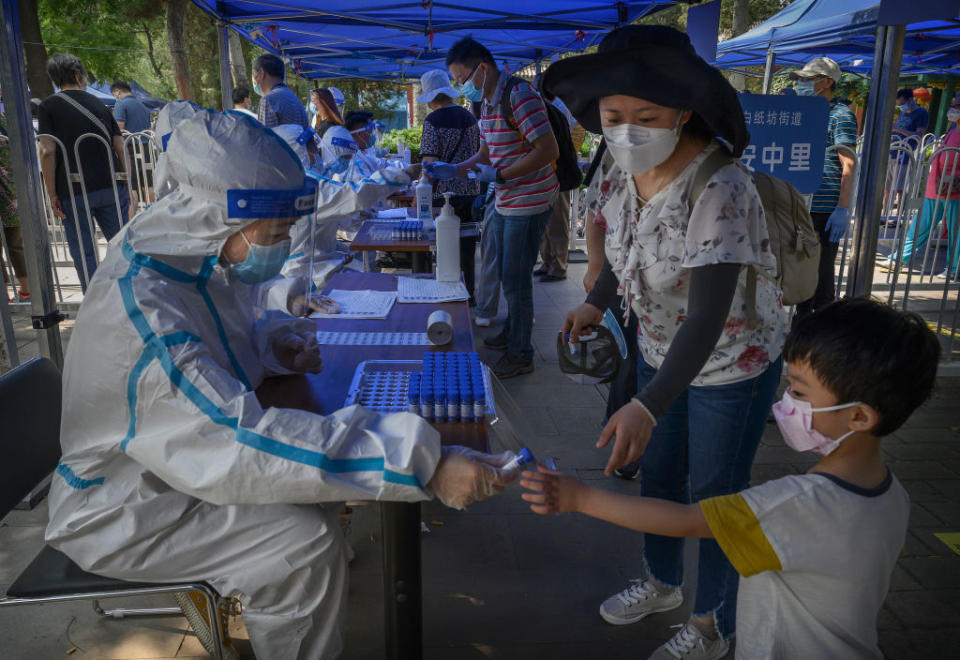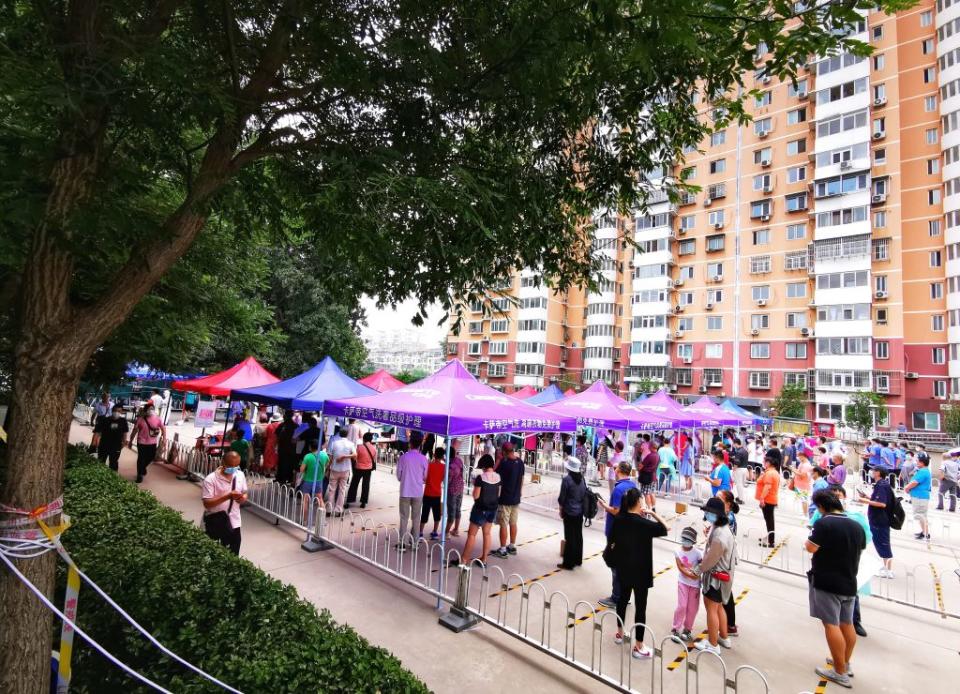China’s drastic move after new coronavirus outbreak at food market
Beijing is set to further ramp up its coronavirus testing following a surge in cases in China’s capital, with millions to be tested in the coming days.
The city of more than 20 million people has recorded 249 cases in the past 12 days, the worst outbreak Beijing has faced since the virus emerged late in 2019.
They are linked to the sprawling Xinfadi wholesale food centre in the city’s southwest.
Testing across the city will now enter a “fast track phase”, with Beijing now able to administer more than 300,000 nucleic acid tests per day compared with 40,000 in March, Zhang Hua, deputy director at the Beijing Municipal Health Commission, told reporters.

Yet Chinese state-owned publication the Global Times reported that this figure could be more than tripled to one million tests a day if samples were batched together – an approach Mr Zhang says will be adopted.
Such a method mixes samples of multiple people and if the batch tests positive, those people are recalled for individual tests.
In comparison, following a surge in cases in the Melbourne area over the past week, there were a predicted 18,000 tests on Monday, Victorian Premier Daniel Andrews said on Tuesday.
The push for widespread testing in Beijing is a continuation of the nation’s rigorous and meticulous approach to the virus, which resulted in the original epicentre of Wuhan being declared virus-free months after the original COVID-19 outbreak which left thousands dead in the city.
Paired with the nation’s draconian restrictions, China has avoided a large scale outbreak witnessed in other major countries globally, with now close to two dozen nations recording more cases and deaths than China since the outbreak began.

Just weeks ago when a small cluster of cases re-emerged in Wuhan, Hubei authorities ordered the widespread testing of all the city’s residents.
By the beginning of June, Wuhan had managed to test nearly 10 million people in an unprecedented 19-day campaign, setting the government back $170 million.
Now Wuhan testing personnel have travelled to Beijing to assist in the huge challenge of testing millions in one of the world’s largest cities.
There are now more than 2000 sampling locations across the city while testing institutes work 24 hours a day to process the samples, with staff regularly working overtime.
While Beijing appears to be adopting a similar all-in approach to Wuhan, authorities have stressed their goal is “giving nucleic acid tests to people who need them."
Delivery people from express companies and food delivery platforms are seen as the highest priority candidates for testing and it is expected that more than 100,000 samples taken from people in those industries will be processed by Tuesday.
Other “high-risk” industries in a list of 36 include catering, supermarkets, shopping malls and trade markets.
By June 22, the samples of close to 3 million people had been collected.
Do you have a story tip? Email: newsroomau@yahoonews.com.
You can also follow us on Facebook, Instagram and Twitter and download the Yahoo News app from the App Store or Google Play.





